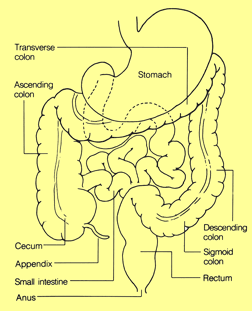|
|
Hi Guest!
Font 

 |
Home > Risks > Stomach Detail |
|
|
|
|
| Stomach Cancer
|
 |
 |
|
| Stomach cancer is fairly rare in the US but very common in other parts of the
world like Asia. It's a silent because it doesn't usually have any symptoms in
the early stages. But people can take steps to lower their risk.
To access your Stomach Cancer Risk completely, at ScienceofLife we have
produced a general questionnaire with a fair knowledge of risk Factors and
related knowlegebase.
|
|
|
|
|
|
|
Risk factors :
Most scientists agree that these things affect the risk of stomach
cancer. Some may apply to you, but others may not.
Age and stomach cancer :
The risk of stomach cancer goes up with age. Most cases are diagnosed after the
mid-50's. The average age the disease is found is 72.
Back to Risk Factors
Sex and stomach cancer :
Men tend to have a higher risk of stomach cancer than women. This difference in
risk, though, is not as great in the United States as it is in other parts of
the world.
Back to Risk Factors
Fruit and stomach cancer :
People who eat at least 3 servings of fruit a day have a lower risk of
stomach cancer. Fruit contains the antioxidant vitamin C. Low levels of vitamin
C are linked to stomach cancer.
1 serving of fruit is:
-
1 medium-sized piece of fruit or 1/2 cup of small or cut-up fruit
-
1/3 cup of 100% fruit juice
-
1/4 cup of dried fruit
People who eat fruits also have a lower risk of lung cancer, heart disease,
diabetes and stroke.
Back to Risk Factors
Salt and stomach cancer :
People who limit the amount of salt they eat have a lower risk of stomach
cancer. Salt breaks down the lining of the stomach, making it easier for cells
to become cancerous. Salt is naturally found in some foods. But it's often
added in large amounts to others, like soups, snacks, and sauces. People who
limit salt also have a lower risk of high blood pressure.
Back to Risk Factors
Blood type and stomach cancer :
People who have blood type A, A+, or A- have a higher risk of stomach cancer.
Scientists aren't sure why. One reason may be that people with these blood
types also have certain genes linked to stomach cancer.
Back to Risk Factors
Family history and stomach cancer :
People who have a mother, father, brother, or sister with stomach cancer have a
higher risk of the disease. This is because some stomach cancer is linked to
mutations in the genetic structure (DNA) of the body's cells. These mutations
can be passed on from generation to generation. With many diseases, people who
have a family history have a higher risk. A family history raises the risk of
several cancers like bladder, kidney and skin cancer. It also raises the risk
of diabetes, bone loss (osteoporosis) and stroke.
Back to Risk Factors
|
|
|
Fact Analysis
|
 |
What is stomach
cancer?
Stomach cancer occurs when cells in the stomach grow out of of control. The
cells clump together and form a malignant (cancerous) tumor. The stomach is a
sack-like organ that holds food and makes digestive juices. When the food and
juices mix, they make a fluid that empties into the small intestine.
Back to Fact Analysis
How common is stomach cancer?
About 21,000 Americans are diagnosed with stomach cancer each year.
Back to Fact Analysis
Who is at risk of getting stomach cancer?
Anyone can get stomach cancer, but it usually strikes people over age 50. And
the risk goes up with age. Men are more likely to get stomach cancer than
women. In fact, it's nearly twice as common in men than women. People with a
family history of stomach cancer also have a higher risk.
Back to Fact Analysis
How do you lower your risk of stomach cancer?
-
Eat at least 3 servings of fruits and vegetables every day
-
Eat less salt
Back to Fact Analysis
Who should get stomach cancer screening tests?
There is no good screening test to find stomach cancer in its early stages. If
you're concerned about stomach cancer, talk to a doctor about your risk. If
your risk is high, a doctor want you to get certain tests.
Back to Fact Analysis
What are the symptoms of stomach cancer?
Stomach cancer often has mild or no symptoms in the early stages. But as the
cancer grows, symptoms may include:
-
Indigestion or a burning sensation (heartburn)
-
Discomfort or pain in the abdomen
-
Nausea or vomiting
-
Diarrhea or constipation
-
Bloating of the stomach after meals
-
Loss of appetite
-
Weakness and tiredness
-
Vomiting blood
These symptoms may also be caused by something less serious like a stomach
virus or ulcer. Only a doctor can know for sure. If you've had any of these
symptoms, talk to a doctor.
Back to Fact Analysis
|
|
|
|
|
 |
 Major
Topics Major
Topics |
 |
|
|
|
 |
|
 |
|
|
|
|
|
|
|
Please Rate This Page: How useful is this information for
you?
|
|
|
All material on this website is protected by International Copyright
Law © 1999-2026 by scienceoflife.com, Life Science Medical Center.
Best viewed in IE5.0+ (1024X768) resolution.
scienceoflife.com - Window To The Future of Medicine™
|
|